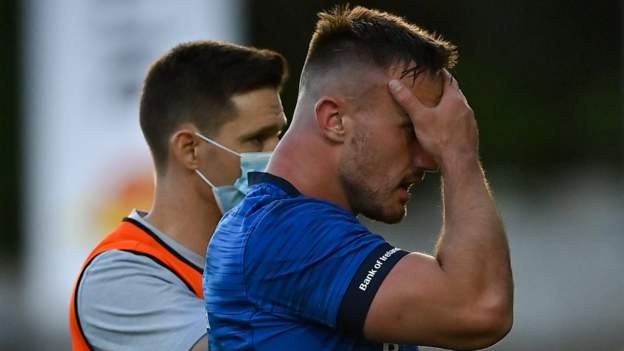
Elite players will face an increased minimum period of 12 days out of action following concussions in a change to protocol announced by World Rugby.
From 1 July, the majority of players diagnosed with concussion are set to miss their next match.
It follows the latest rugby-specific research by World Rugby's independent concussion working group.
Currently, a player can play a week after a failed head injury assessment if they pass return-to-play protocols.
"The evolved approach will see players with a history of concussion or who are removed from a match with obvious concussion symptoms, sit out from play for a minimum of 12 days, likely missing their next competitive match," World Rugby said.
"No player will return earlier than the seventh day after injury, and any player's return will need to be approved by an independent concussion consultant."
The new rules will come into effect while home nations England, Scotland, Wales and Ireland are on Test tours overseas this summer.
A player is determined to have a history of concussion if they have had a concussion diagnosis in the previous three months, three concussions diagnosed in the previous 12 months, been diagnosed with five concussions in their career or taken longer than 21 days to recover from a previous concussion.
World Rugby's chief medical officer Eanna Falvey added: "It is going to be a new mindset for coaches and players.
"Our approach means it is now overwhelmingly likely a player diagnosed with a concussion won't play in their team's next match.
"World Rugby firmly believes that scientific evidence supports our protocols, but we are continually monitoring and testing them to ensure that they are fit for the modern game.
"We recognise that there are differences in concussion symptoms and concussion history, and this process enables us to further protect elite players by individualising their rehabilitation.
"It also keeps in place all the benefits of the previous protocols, which have been so successful in beginning to tackle under-reporting of symptoms which evidence shows that, while improving, remains an issue."















 Phone: (800) 737. 6040
Phone: (800) 737. 6040 Fax: (800) 825 5558
Fax: (800) 825 5558 Website:
Website:  Email:
Email: 






